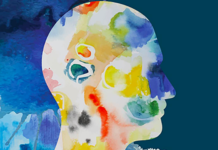5 Tasks if Your Child is Diagnosed With a Mental Illness
When I teach workshops or lead discussions on coming off psychiatric drugs and alternatives, there are invariably parents present who are at loose ends. They want to know what to do for their children, how to help them best, and how it can be possible for their child to live without medication given all they have been through.
Bringing Trauma-Informed Care to Children in Need
From STAT: Numerous studies have confirmed that adverse childhood experiences are common and can lead to negative long-term health outcomes. Many pediatricians and hospitals are working...
The Adverse Childhood Experiences Study
Gianna Kali reviews the Adverse Childhood Experiences (ACE) study, "one of the largest investigations ever conducted to assess associations between childhood maltreatment and later-life...
Conversion Therapy Ban Will Get a Vote in Palm Beach County
From the Sun Sentinel: Palm Beach County is drafting regulations prohibiting therapists from practicing conversion therapy to try to change a child's sexual orientation. Palm Beach...
Loss of a Parent in Childhood Raises Psychosis Risk
Children who lose a parent before the age of 3 are 84% more likely to experience psychosis as adults, according to research published in...
Trauma and Misdiagnosis in Childhood Bipolar Disorder
Psychology Today offers a psychoanalytic perspective on childhood bipolar disorder that finds trauma at the root, a view that sees Beyond Meds as extending beyond the diagnoses...
How We Can Inherit Trauma and Resilience
Philip Perry, writing for Big Think, covers studies in epigenetics revealing how trauma can be passed on through generations.
Article →
“Childhood Adversity Hurts Our Mental and Physical Health”
Dr. Jeffrey Brenner, a recipient of a 2013 MacArthur Foundation genius award, wrote: “ ACE Scores should become a vital sign, as important as height, weight,...
How to Really Help LGBT Teens Thrive
From The Atlantic: Although acceptance of LGBT individuals is growing, LGBT teens still on average experience lower life satisfaction and more depression than their straight peers,...
“Sugar May be as Damaging to the Brain as Extreme Stress or Abuse”
“The fact that drinking sugar or exposure to early life stress reduced the expression of genes critical for brain development and growth is of...
Free Online Course: Psychology and Mental Health- Beyond Nature and Nurture
MIA contributor, Peter Kinderman, from the University of Liverpool, is teaching a free online course that explores new perspectives on the “nature vs nurture” debate, and how we are affected by life experiences.
“NIH Awards $150 million for Research on Environmental Influences on Child Health”
The National Institutes of Health announced $157 million in awards in fiscal year 2016 to launch a seven-year initiative called Environmental influences on Child...
“Post-Katrina Stress Disorder: Climate Change and Mental Health”
Writing for Truth-Out, hurricane Katrina survivor G. Maris Jones writes: “To adapt to a changing climate, survivors of these catastrophes - especially those in marginalized, low-income communities - need long-term physical and mental health services.” She adds a concurrent call to “assume our responsibility to make positive change through action on climate change.”
“California Moves to Stop Misuse of Psychiatric Meds in Foster Care”
On Tuesday, NPR told the story of DeAngelo Cortijo. DeAngelo became a foster kid at age 3 after his mother attempted suicide. He was “diagnosed with bipolar and anxiety disorders, attachment disorder, intermittent explosive disorder or posttraumatic stress disorder,” and was prescribed “a combination of antipsychotics, antidepressants and stimulants, and was told that taking them was his only hope of being normal.” Through equine therapy, DeAngelo was eventually able to get off all of his medication. Now, California is hoping to pass reforms that would prevent foster kids, like DeAngelo, from being “prescribed antipsychotic drugs at double to quadruple the rate of that not in foster care.”
PTSD Mediates the Relationship Between Trauma and Mental Health
In a sample of 175 persons with severe mental illness, researchers at the University of Hawaii found that rates of trauma exposure and PTSD...
Using Chosen Names Reduces Suicide in Transgender Youths
From UT News: A new study has found that allowing transgender youths to use their chosen name at home, school, and work dramatically decreases their risk...
Specific Early-Life Adversities Lead to Specific Symptoms of Psychosis
Researchers in the U.K. (lead by Richard Bentall) found that specific childhood adversities were significantly associated with specific forms of psychosis in adulthood in...
Bullying & its Long-Term Effects on Wellness
Psychologist William Copeland writes for Mental Health Recovery that “bullying can occur at any age and the effects of which remain harmful long after the behavior has been endured.” “We, as a society, are just beginning to understand and come to terms with the havoc that bullying wreaks on the emotional lives of its victims.
Income Differentials Cause Mental Illness
Data from the World Health Organization World Mental Health Survey showed that early-onset mental disorders were associated with reduced household income in high and...
Spanking is Associated With Mental Illness
Canadian researchers, publishing today in the journal Pediatrics, find that physical punishment such as spanking is associated with an increased risk of mental disorders....
Dissociative Experiences Mediate Childhood Trauma/Auditory Hallucinations
Researchers in Spain assessed 71 patients diagnosed with psychoses for dissociative experiences, trauma, delusions and hallucinations. Childhood trauma was positively associated with dissociation (r =...
Discipline, Not Drugs
This is how a child gets into the mental health system. At age 3 he pitches a fit in the grocery store because he...
Early Trauma, Social Stress Accompany Psychosis
Researchers at Emory University find that childhood trauma, sensitivity to psychosocial stress and a heightened biological response to stress are associated with the onset...
No Long-Term Efficacy For A.D.D. Medication
L. Alan Sroufe, emeritus professor of psychology at the University of Minnesota, writes in the New York Times Sunday Review that there is no...
“Emotional Child Abuse Has to be Banned – The Science Backs up our Instincts”
The U.K.'s Guardian newspaper concludes that "The government is right: children need love as much as they do vitamins – and a lack of...














